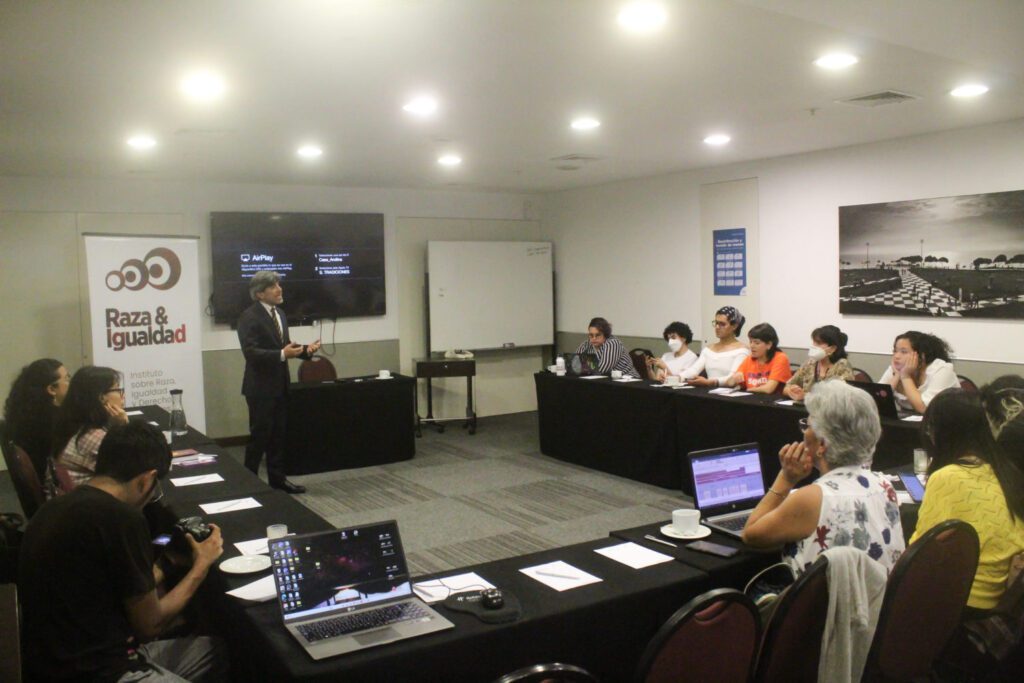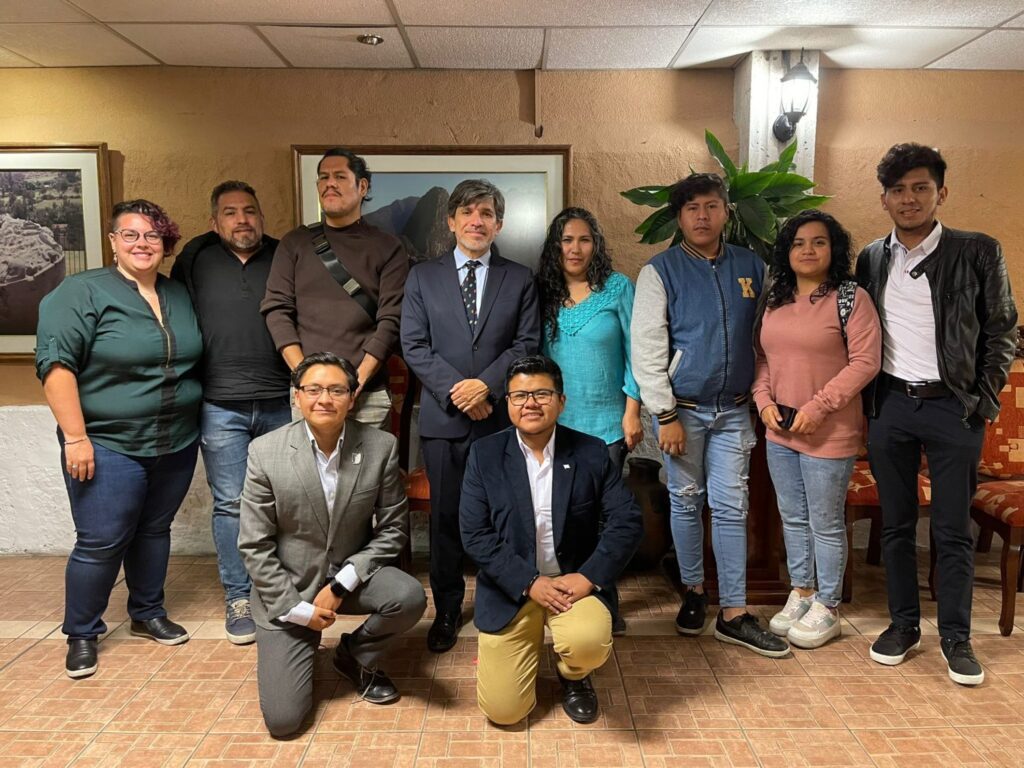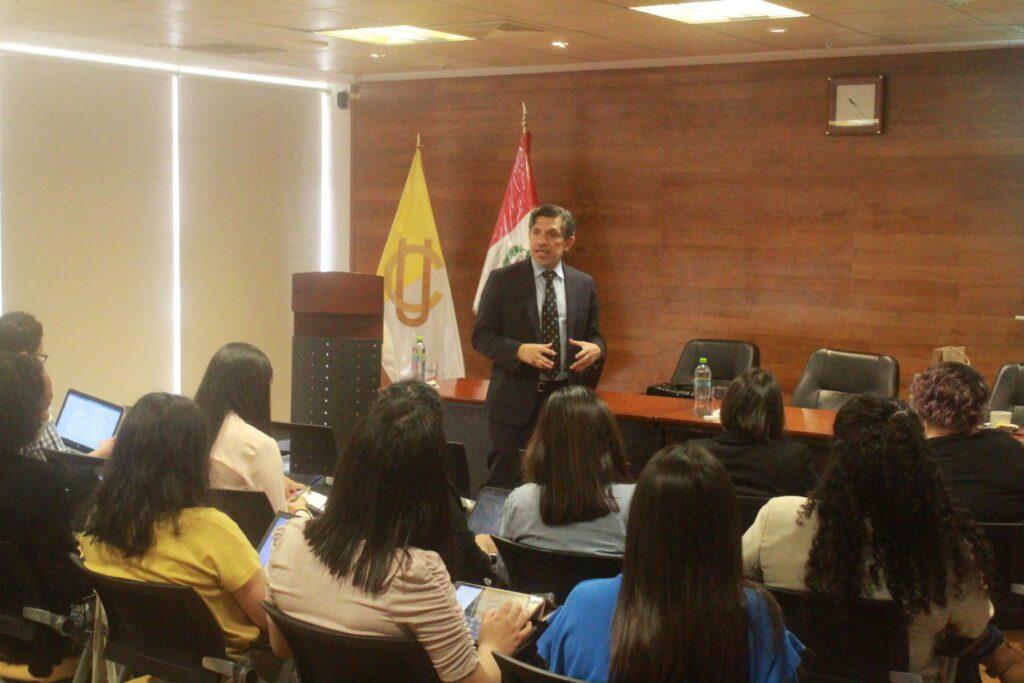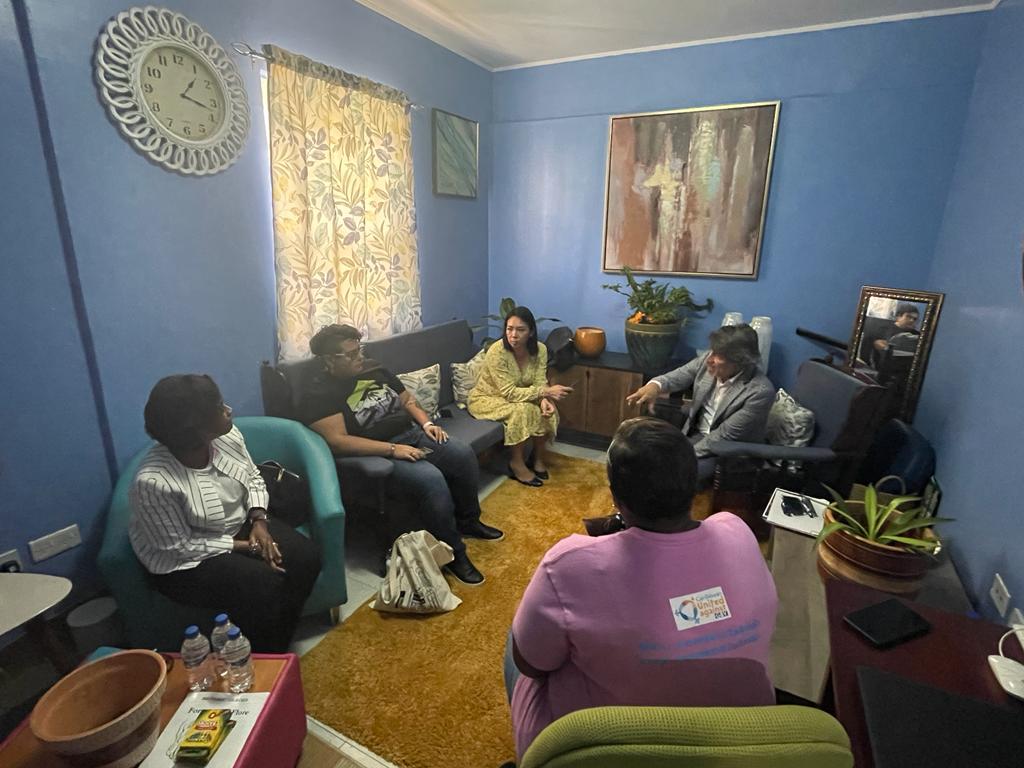Lesbian Visibility: Couples, Families and Lesbian Maternity Homes
Washington D.C., April 26, 2023– On the International Lesbian Visibility Day, the Institute on Race, Equality and Human Rights (Race and Equality) believes it is necessary to talk about the visibility of family diversity made up of lesbians and non-binary lesbians, either with or without children, the right to love outside of the heterosexual framework, and still enjoy the legal protection of the State.
Although international law recognizes that all people are equal before the law,[1] the legal protection for same-sex couples, in terms of equality, is not the same. The inability to marry, adopt, and be recognized as a family due to lesbophobia and structural discrimination keeps lesbians and their children unprotected.
According to Statista, in Latin America, equal marriage is legal only in seven countries and in some Mexican states. In the case of Cuba, following the adoption of the new Family Code, persons of the same sex could marry and adopt, however, lesbians remain invisible. “There are articles and laws that address diversity, but we continue to be discriminate. My partner Kirenia Núñez and I have been together for seven years, and in all that time we have suffered lesbophobic violence. We have been violated for being activists and for being lesbians in a country where the state doesn’t really recognize us,” said María Matienzo, a Cuban writer who was forced to leave the island.
Up until 2008 in Nicaragua, the “crime of sodomy” was enforced in Article 204 of the Criminal Code, which criminalized same-sex relations with sentences of up to three years in prison.
Despite the repeal of this Article, lesbian women and non-binary lesbians of Nicaragua are exposed to religious fundamentalisms, hate speech, machismo, and a lack of protection by the State. The Nicaraguan Constitution does not recognize the right to self-determination with respect to gender identity or equal marriage, which makes it impossible to form families of lesbian parents, having or adopting children, and inheriting as a surviving spouse.
When States do not legally recognize or protect lesbian families, they leave them without access to other rights such as inheritance, social security, widowhood or divorce pensions, custody or adoption of children, housing, employment, credit, visits to hospitals and prisons, among others. In addition, this helplessness extends to their children and their most fundamental rights such as recognizing their two mothers and bearing their surnames.
In Peru, Jenny Trujillo and Darling Delfín, two lesbians married in Mexico, are suing the Peruvian State before the Inter-American Commission on Human Rights (IACHR) because the National Registry of Identification and Civil Status (RENIEC), since 2016, refuses to register them as mothers on their son’s National Identity Card (DNI) even though the Judiciary ordered him to do so.
Last year, after five years of being discriminated against as lesbians and mothers, Jenny and Darling went to international courts with a petition and request for precautionary measures to guarantee: a life without discrimination, the best interests for their son, free development of personality, personal freedom, among others.
Although equal marriage does not exist in Peru, Article 2050 of the Civil Code and the Constitution provide recognition of marriages and rights acquired abroad. “We have faith that soon more lesbian mothers will be able to have their sons or daughters recognized and protected by the Peruvian State, and that there will no longer be the need to leave our country to seek legal recognition,” says Jenny Trujillo.
In the case of Colombia, there was an equal marriage law that recognized same-sex unions; however, institutional obstacles persisted that discriminated against women, not only because they were lesbians but also because they were of African descent. “Families of lesbian parents made up of black women exist. We are tasked with mothering from a place of love, respect, and empathy. We often encounter institutional barriers that do not recognize us as mothers of our children, that make us invisible, that do not allow us to enjoy the rights that we as mothers have. The families of lesbian black women are here, and we want to be visible,” says Sami Arizabaleta, activist and director of the Afro-Descendant Foundation for Social and Sexual Diversity – Somos Identidad.
Advisory Opinion 24/17 of the Inter-American Court of Human Rights on the International Protection of Same-Sex Relationships is clear when it indicates that the American Convention does not establish a closed concept of the family. Not even one model is protected. For this reason, “the rights resulting from affective relationships between couples are usually protected by the Convention through the Family Institute and the Family Life Institute.”[2]
States must fulfil their obligations regarding the principle of equality and non-discrimination provided in Article 24 of the American Convention on Human Rights, which is elaborated extensively in General Comment No. 20 of the United Nations Committee on Economic, Social and Cultural Rights.
Considering this, Race and Equality raises some recommendations for States on measures to protect the rights of lesbians:
- Guarantee the right to a family and the civil rights of lesbians and GBTI+ people through the legal recognition of lesbian mothers and diverse families.
- Guarantee access to equal marriage and maintain unrestricted respect for rights acquired abroad.
- Develop mechanisms that prevent the criminalization of lesbian mothers in processes of custody of their children.
- Strengthen training programs for State officials to guarantee dignified treatment of lesbians and GBTI+ people in public services.
- Implement Comprehensive Sexual Education policies that guarantee respect for sexual diversity and gender identities.
- Register, document, and analyze violence against lesbians and GBTI+ people to formulate policies that respond to their needs.
- Guarantee access to justice. Investigate and punish discrimination and crimes committed against lesbians and GBTI+ people.
- Promote access for lesbians and GBTI+ people.
- Create accessible political spaces and positions of power to guarantee the right to political participation without violence and with the representation of identities.
- Implement assistance programs for cases of violence due to prejudice in and out of the home.
Note: In Brazil, there are two specific dates for the lesbian movement: August 19, Lesbian Pride Day, and August 29, Lesbian Visibility Day. Therefore, the Brazilian Lesbian Movement feels represented by these dates that contemplate the struggle and history of Brazilian lesbian women.
[1] Art. 24 of the American Convention on Human Rights.
[2] Art. 174 of OC 24/17 of the Inter-American Court







